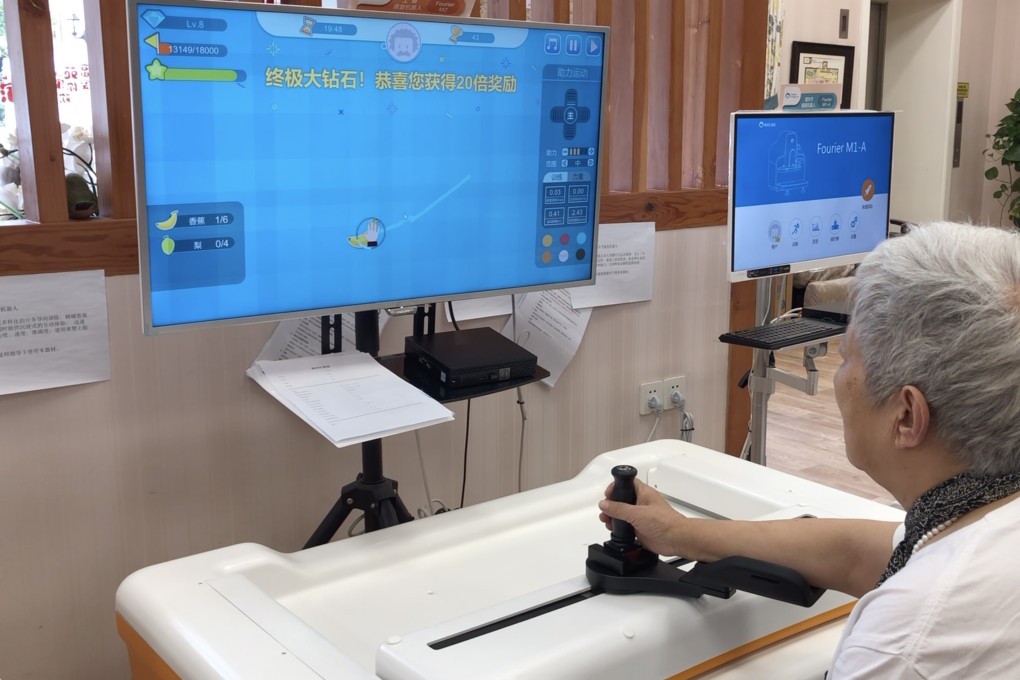How nursing homes in China are turning to AI robots and virtual fruit to rehabilitate the elderly
- A growing number of scientists and tech companies in China are working on AI applications to make the country’s health care services more flexible

Wang Lingmei is sitting in front of a rehab training machine in an elderly care centre in China and playing an electronic game.
Using a machine that looks a bit like an electronic piano with a TV screen attached instead of a music score, the 84-year-old is reaching out to touch virtual fruits by moving a handle as part of a daily exercise routine to recover mobility after fracturing her right arm and leg in a fall a year ago.
“The game is interesting and makes me feel happy,” she says in a Shanghai dialect. “We have a therapist to monitor our condition while using it, so I am not afraid of this technology and machine. After all, it’s a new thing for me.”
Wang is one of 30 patients who live in the Lujiazui Elderly Community Centre, which is located in one of the most popular areas of Shanghai’s Pudong district.
The use of AI in the global health care market is expected to grow from US$2.1 billion in 2018 to US$36.1 billion by 2025, according to a report by research firm MarketsandMarkets.
China is greying and the number of over 60s reached 250 million in 2018 out of a total population of about 1.4 billion, meaning the country needs to address how a growing proportion of elderly people can be supported by a creaking welfare system.